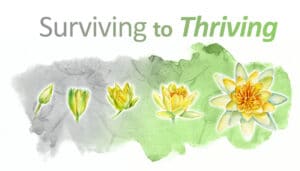“The journey that parents and children go through after premature birth does not end when they leave hospital and bring their baby home.” Catriona Ogilvy, parent of children born prematurely and Founder, The Smallest Things
Yesterday (17 November) marked World Prematurity Day, which is a global movement to raise awareness of premature birth and the significant impact this can have on families. It is timely that this coincided with the launch of a new report ‘Preterm birth: reducing risks and improving lives’ from the House of Lords Preterm Birth Committee. We know that having a preterm baby is a significant event and can have lifelong implications for both the baby and their family. Whilst by no means inevitable, being born early increases the risk of long-term health conditions including special educational needs, physical disability, communication difficulties and autism. It is therefore vital that babies who are born preterm have access to high quality health care throughout their earliest years to identify any problems early and ensure that they get the right support to thrive.
The report also highlights the importance of supporting parents. The psychological impact of having a baby born preterm on parents should not be underestimated, and their needs must be supported, with improved provision of family integrated care.
The report follows an extensive review of current care provision, and makes several recommendations to reduce the impact of preterm birth in the future:
- To focus on national targets that reduce the incidence of preterm births across all groups of the population: the government had set a target to reduce the numbers of preterm births in 2017, this target will not be met and the House of Lords recommend a need to focus on reducing the impact of preterm births in diverse populations and revising these targets.
- To improve preterm birth prevention: the importance of pre-conception care and pregnancy planning are emphasised, recognising the impact of smoking, obesity and poor mental health on the risk of preterm birth. Health visitors, as Specialist Community Public Health Nurses, clearly have an important role to play here, and this is highlighted in the report.
- To ensure every region has the resources to implement intervention programmes that focus on consistent delivery of best-practice clinical guidance, reducing variation in care: The NHS Saving Babies Lives Care bundle makes good recommendations for improving care throughout the preconception period, pregnancy, birth and the postnatal period. However, currently there is unjustified variation in the implementation of these recommendations locally. There is a need to address this local variation across the whole care pathway (including antenatal and postnatal health care which has encountered significant cuts in recent years).
- To meet the commitments to develop the maternity and neonatal workforce set out in the NHS Long-term Workforce Plan: This will require investment in health care staff across the whole maternity pathway, including health visitors; alongside clarity regarding the scope and expectations of different roles across a national maternity pathway (that extends beyond the NHS to include health visiting) to ensure that safe and high-quality care is provided to all families.
- To support improved provision of family integrated care: Involving families in their baby’s care is essential and family-integrated care needs to be supported on neonatal units with investment in parent accommodation.
- To prioritise work to ensure that care after discharge is in line with NICE guidance: including follow-up assessments for children who were born preterm up to the age of four.
- To introduce targeted training for health visitors, so they can develop specialist knowledge of the needs of preterm babies and their families: In light of the current workforce shortages in health visiting, it will also be essential that action is taken to rebuild workforce capacity to ensure that there are sufficient health visitors to deliver high quality care, in line with this guidance, as intended.
The iHV welcomes the focus of the inquiry on care in the community and its recommendation for targeted training for health visitors to support their work with families with preterm babies.
The need training for health visitors to develop specialist knowledge of the needs of preterm babies and their families?
In partnership with The Tiny Lives Trust, the iHV has developed the ‘Surviving to Thriving’ training programme for health visitors in their work with neonatal families. This training was developed as part of a project with The Tiny Lives Trust to consider the needs of families of preterm and sick babies. The co-produced training programme includes a one-day training event plus e-learning for health visitors. This well-evaluated programme aims to equip health visitors as local Ambassadors for neonatal families, and is being rolled out in some parts of the UK. If you are interested in booking onto this programme, please contact [email protected] for access to the e-learning and to book a place on future training – March 2025.








